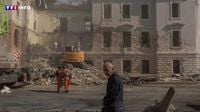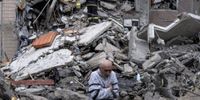On Thursday, May 8, 2025, Ukraine accused Russia of continuing its attacks across the entire front line, despite a three-day ceasefire unilaterally announced by President Vladimir Putin. The ceasefire, intended to coincide with the 80th anniversary of the victory over Nazi Germany, was supposed to begin at midnight, but Ukrainian officials reported significant violations almost immediately.
Ukrainian Minister of Foreign Affairs Andriï Sybiga took to social media platform X to express his frustration, stating, "According to our military data, despite Putin's declarations, Russian forces continue to attack on the entire front line." He detailed that since midnight, Russia had committed 734 violations of the ceasefire and launched 63 attempted assaults.
In stark contrast, the Russian military claimed to be adhering strictly to the ceasefire. The Russian Ministry of Defense asserted that they would respond to any Ukrainian attacks that violated the truce, but insisted no aviation, missile, artillery, or drone strikes were being conducted. They reported 488 violations by Ukrainian forces, claiming to have ceased all offensive operations.
Earlier on the same day, the Ukrainian Air Force accused Russia of launching guided aerial bomb attacks in the Sumy region, stating, "Lancement de bombes aériennes guidées par l'aviation tactique ennemie sur la région de Soumy." However, they also noted that between 9 PM GMT on May 7 and 5 AM GMT on May 8, there were no recorded missile strikes or drone activity in Ukrainian airspace.
Despite the ceasefire, the Ukrainian State Emergency Service reported strikes on a residential area in the Bilopillia community of the Sumy region, underscoring the ongoing violence. Reports indicated that rescuers managed to extract a woman trapped under debris following the attacks.
President Volodymyr Zelensky, reflecting on the significance of the date, stated, "The evil must be fought together, with determination and strength." His remarks came just hours after the ceasefire was supposed to take effect, emphasizing the ongoing struggle against Russian aggression. Zelensky criticized the upcoming commemorations in Moscow as a "parade of cynicism" and "lies," calling for a more extended, unconditional cessation of hostilities for 30 days to facilitate meaningful negotiations.
As the situation unfolded, Moscow prepared for the arrival of several foreign leaders for the commemorations on May 9. Among them was Chinese President Xi Jinping, who expressed solidarity with Russia in the face of what he termed "hegemonic harassment" from the West. This visit highlighted the deepening ties between China and Russia, as both leaders emphasized their commitment to defend the historical narrative of World War II against what they perceive as Western distortion.
In a related development, the Ukrainian Parliament ratified a historic agreement with the United States regarding the exploitation of the country’s natural resources. Minister of Economy Ioulia Svyrydenko announced that this agreement, which passed with 338 votes in favor, is expected to pave the way for new military aid from the U.S. to support Ukraine in its defense efforts.
Meanwhile, the situation on the ground remained tense, with Ukrainian officials warning that the ceasefire was being violated. Andriï Kovalenko, a spokesperson for the Ukrainian government, stated that the temporary ceasefire was not being respected, particularly in the eastern front and the Kharkiv region.
In summary, as the world watches the commemoration of a historical victory, the reality on the ground in Ukraine is starkly different. The ongoing conflict continues to claim lives and disrupt communities, with both sides accusing each other of failing to uphold the terms of the ceasefire. With the specter of further violence looming, the international community remains focused on the complex dynamics of this enduring conflict.





